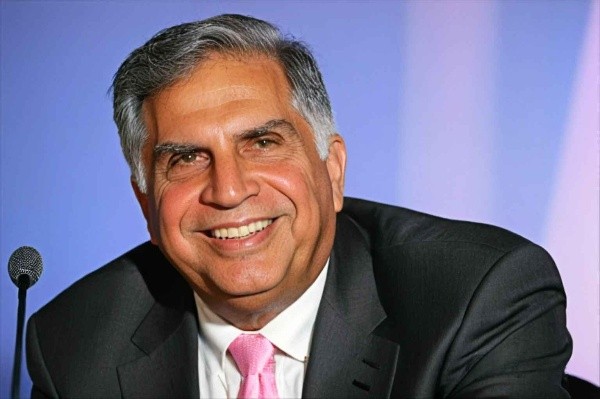The Death of Hamas Leader Yahya Sinwar: What We Know So Far
Israel and the US claim intelligence provided Sinwar’s whereabouts, but this is doubtful.
Loading...

Tata, who passed away on Wednesday, was known for his humility and his expansive vision.
A Humble Beginning
Ratan Tata, who passed away in Mumbai on Wednesday, was renowned for his modesty and groundbreaking vision that catapulted the Tata Group into a global powerhouse. Famously unassuming, Tata once quietly signed his name on a waitlist at the Sea Lounge in Mumbai’s Taj Hotel, without revealing his identity as the chairman emeritus of the Tata Group, which owns the hotel.
Under Tata’s leadership, the group reached over $128 billion in revenue by 2022, acquiring iconic brands like Jaguar Land Rover and Tetley Tea. He was mourned as a beloved figure in India for steering Indian businesses towards international prominence, embodying the spirit of a liberalizing economy.
A Legacy of Thinking Big
Ratan Tata took the helm of the Tata Group in 1991, at a pivotal time when India began to open its economy by moving away from protectionist policies. He transformed the century-old industrial conglomerate into an innovative, efficient, global entity. His legacy, according to former Tata Motors CEO Ravi Kant, was his ability to conceptualize the impossible and make it a reality.
Tata’s journey was not without challenges. Initially seen as a "bacha" or kid by senior company heads, he confronted internal resistance and managed to consolidate his authority over the group. He strategically increased Tata Sons’ shareholding in group companies and implemented a retirement age policy, which led to significant leadership changes.
Global Ambitions and Strategic Acquisitions
During the economic reforms of the 1990s, Tata encouraged his executives to think beyond India’s borders, laying the groundwork for the group’s resilience during economic downturns. This global outlook led to significant international acquisitions, starting with Tata Tea’s purchase of Tetley in 2000, followed by Tata Motors’ acquisition of Daewoo Motors’ commercial vehicle segment in 2004.
The most notable acquisitions under Tata's leadership were the purchase of Corus, a major Anglo-Dutch steelmaker, and Jaguar Land Rover, the ailing British car brand. These acquisitions, despite the challenges posed by the 2008 global financial crisis, reflected Tata’s commitment to expanding the group’s global footprint.
Innovations and Setbacks
One of Tata’s ambitious projects was the Tata Nano, envisioned as the world’s most affordable car. Despite logistical hurdles, including relocating the manufacturing plant across India, Tata fulfilled his promise to launch the Nano at an unprecedented price of 100,000 rupees. Although the car did not achieve commercial success, it exemplified Tata’s innovative spirit.
Challenges and Controversies
Ratan Tata’s career was not without controversy. In 2009, leaked tapes revealed his discussions with lobbyist Nira Radia about telecom licenses, leading to legal battles to protect his privacy. His formidable reputation was further highlighted during his clash with successor Cyrus Mistry, eventually leading to the appointment of N Chandrasekaran as the group chairman.
A Philanthropic Vision
In his later years, Tata dedicated himself to philanthropy through Tata Trusts, focusing on healthcare, sustainable development, and education. His commitment to social causes and frugal lifestyle inspired admiration among younger generations. Tata, who never married and had a great love for dogs, was fondly remembered for his humility and towering corporate achievements.
As the city of Mumbai mourned his passing, Tata's legacy as a visionary leader and compassionate human being continues to influence and inspire. His contributions to Indian business and society remain a testament to his remarkable life and career.
Editor
Israel and the US claim intelligence provided Sinwar’s whereabouts, but this is doubtful.
Israel says the major attacks that levelled multiple residential buildings in southern Beirut targeted Hezbollah’s ‘central command’.
Most citizens of this Middle Eastern country favor a military solution to the conflict with Hezbollah, and some even hope to “resettle Lebanon’s south”
